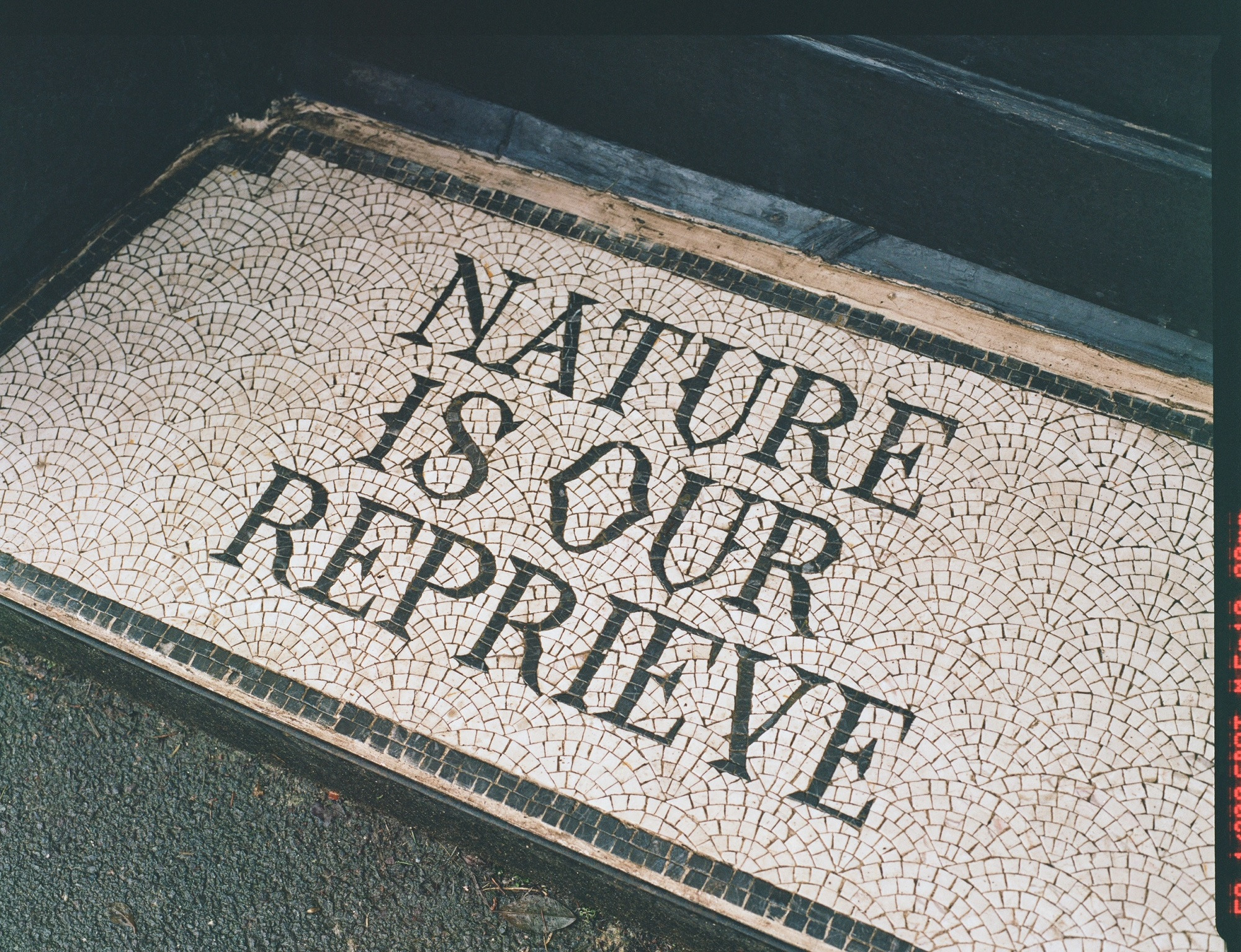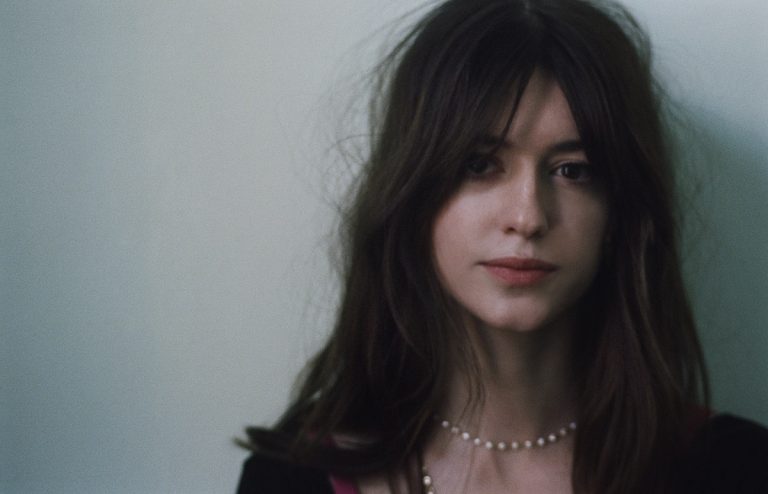
Dreaming Towards Something
Published: 2022/05/21
Updated: 2022/11/12
In the two years that have passed, while much was paused, Daisy has blossomed. She is quickly building a reputation for portraying complex young women on the cusp of adulthood, whether navigating the world of online dating in modern horror Fresh, or as an isolated girl in 1950s North Carolina in Where the Crawdads Sing. Her friend, musician Joy Crookes, talks with Daisy about where her work has taken her so far – and where she wants to go next.
JOY CROOKES: Hello, Daisy.
DAISY EDGAR-JONES: Hi, Joy. How’s things?
Good, I’m in LA. Just woken up.
I got here last night, so I feel like a vegetable. I can’t function. How are you feeling, going to all these parties? And even being in LA is so wild. Isn’t it? I hope I see you at some of these things. It’s so nice to have friends and to know there’s people here that you know.
Yeah, there might be fucking Robert De Niro at it or whatever, but at the end of the day, these are still normal people.
Obviously.
I feel like when you are there and you’re like, ‘I’m just having a good time’, people gravitate and warm to that, and they’re like, ‘Oh wait, I want to do that too. I don’t have to have this whole appearance thing.’ It’s taken me ages to get to the point where I can be like that. I’ve always felt very on edge and stuff, and initially I do feel on edge.
I guess, because we’re coming out of COVID now, I feel like everyone’s really going for it. It feels like it’s far more… I don’t know. I’ve never been this social. I really, really haven’t, so it’s quite the baptism of fire.
You were dropped into a deep end in some ways.
Definitely. Yeah.
I do feel like you became famous over lockdown, which goes from seeing no people to then being outside and then everyone’s recognising you. I saw how quickly that was too. When it comes to 'Normal People' and how that entire show is about intimacy and connection— something that we completely lacked during the pandemic—were you aware of how poignant that would be, being released at that time? We know it’s an amazing show and I’m sure you read the script and were like, this is insane, but did you know it was going to have that kind of poignant, intimate connection it had with people?
I always wonder how different things may have been if it had come out in a different time. I knew the script was really special and I knew the book was, too; I love the book, and I knew Lenny’s [Abrahamson] work was amazing and he was the perfect person to bring that story to life. But I wonder, because we were so aware of the relationships in our lives that we weren’t able to sort of... We weren’t able to see our friends and our loved ones and we were so aware of that fact. There was something so intimate about the relationship in that series that I do think it sort of weirdly stuck in people’s minds more than it may have, or it perhaps meant more at that time. Even just watching them going out and partying in Trinity [College] and being a young person. For so many of us—especially, I feel for the people who were finishing college, and I had loads of friends finishing university from inside their bedroom, it felt like we were really hyper-aware of the connections and what we were watching on screen because it was sort of all we had. It was like we were kind of living vicariously through [Marianne and Connell], or I certainly was when I was watching. It’s such an intense relationship. Maybe it did resonate more, which I never could have predicted.
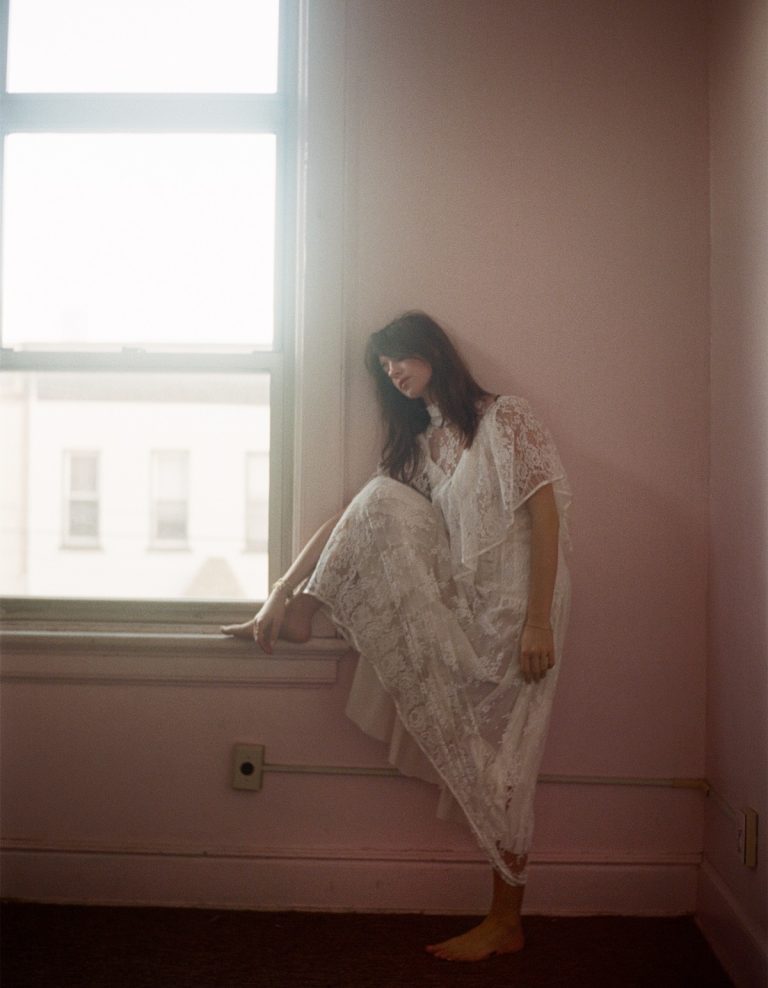
Dress RODARTE, dress (worn underneath) COMMISSION, all jewellery TIFFANY & CO.
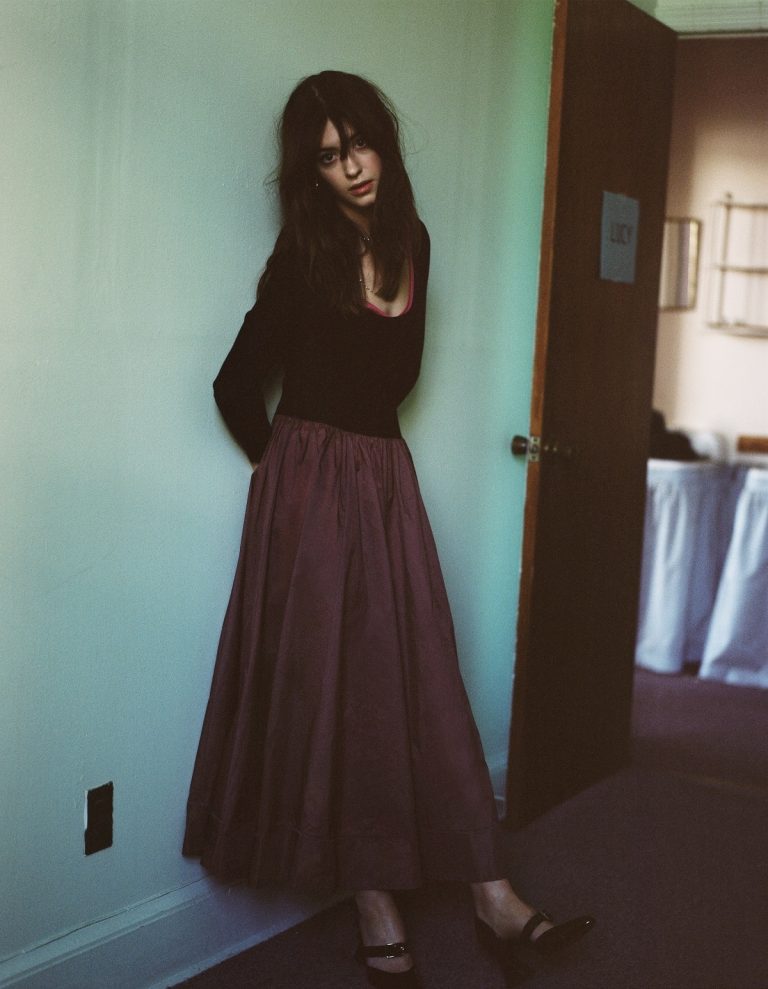
Dress and top MARYAM NASSIR ZADEH, shoes CHANEL, all jewellery TIFFANY & CO.
It’s quite out there in terms of it’s very intimate. It shows a lot of nudity, but it’s done in such a beautiful way. I’ve read the book and I found that the visual nakedness, no pun intended, was so important in understanding that connection and intimacy. And again, it just adds even more to what a lot of people were obviously missing during the pandemic. How did you find shooting those scenes? When I was watching those scenes, because I know you as a person, I was like, how do you feel safe in this? Obviously, women’s bodies are eroticised all the time and it’s very interesting to see a man also be so nude at the same time with Paul [Mescal]. How did you find creating those scenes and making that space feel safe?
I’d never done anything like that before. I’d never really played a lead before, let alone shoot scenes like that. When we got to those scenes, we had such good [guidance] from Suzie [Lavelle, the cinematographer for 'Normal People'], who’s incredible. We had these amazing Nan Goldin photos that she used as a reference.
No way, I love Nan Goldin so much.
All the photos, anything that has nudity in it, it’s all so very incidental. It’s about capturing the moment and the story of that, rather than being sexualised or eroticising anything. There was this one photo that Suzie used a lot, which was a girl and she’s lying on the bed and her feet are in the air and he’s lying next to her and her feet are really dirty. It’s just really beautiful and the connection between them is so apparent in that photo. It’s such a simple image. I guess when I saw that and I spoke to Lenny about how he wanted to film it, it was always about portraying the story of a relationship and the connection and that being the centre of all those scenes. Rather than it being presented in a very sort of movie way, because often with those scenes, you have it in a big wide and there’s billowing sheets and it’s all very… the nudity is sort of about that. But with ours, it was very much about the faces and the emotion that was playing on each other’s faces. And then any bits of nudity were incidental.
That’s how it came across. When I think of those scenes it’s just so beautiful, especially between two young people, to watch that connection and it be not eroticised, not deeply romanticised. It’s actually just very real. And it’s the dirty feet thing that we’re talking about.
Yeah, exactly.
It’s real. Did your relationship to your body and your physicality evolve as a result of filming the show?
I wonder... I feel like I definitely have more confidence I guess, because it was that feeling of—because this relationship is so realistic and raw, and when you are being vulnerable with somebody, it’s such an intimate reveal of something. I definitely knew that I couldn’t come into it feeling... I mean, I could play some of the self-consciousness, especially in those first scenes because Marianne’s feeling that way, but as it went on, I had to really play it in a way that was truthful. There was just a feeling of, well, I have to just kind of accept everything and go for it. That’s what I’ve always loved about being an actor. It affords you the chance to depart from yourself a little bit and your own anxiety. That’s really why I was always drawn to it. I was always quite shy or very self-conscious, and I felt like playing a character gave me a chance to do the thing I myself would be too scared to do. And so it was a bit of that with those scenes too. It’s the character, you leave yourself behind a little bit.
It’s interesting that you say you leave yourself behind, because obviously if there’s a leave, there is always a return. And it must be very interesting when you have that perspective of leaving your body and then actually turning into a body and seeing how your body feels because of that departure.
You do that with so many different characters obviously, being an actor. That must be really insightful.
Yeah. It’s crazy how much that stuff stays in your nervous system, in a way that I didn’t realise. It’s funny. In 'Fresh', which just came out, there’s some really crazy scenes that are really abject terror, which I’ve never had to play properly before. It was really funny watching that scene, when I first watched the film, where Noa [Edgar-Jones’ character] wakes up and discovers her fate. Watching it, I felt my heart going back to that place that it was in when I was filming it. I didn’t realise how much that had stayed in my system. It’s funny seeing how much you learn from playing each character and how much you grow as an actor. As you come out of it and you go on to the next character, you can see all the kind of tools and skills you’ve picked up along the way, which is really cool.
I can only imagine. I have to go and play myself all the time.
I would be terrible at that. I think that’s far harder.
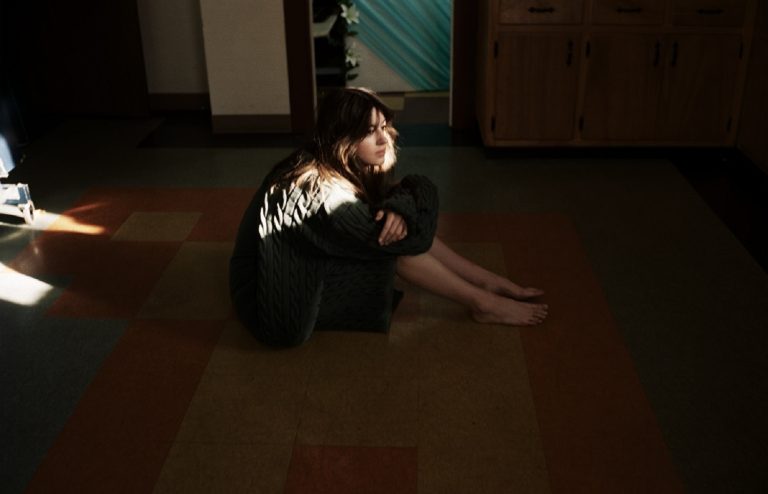
All clothing MIU MIU, all jewellery TIFFANY & CO.
Let’s talk about 'Crawdads' [the film 'Where the Crawdads Sing']. Your characters in 'Crawdads' and 'Normal People' are both young women struggling to access intimacy and connection after being isolated and unloved in childhood. They both suffer violence at the hands of men and their families. How easy do you find it to access the vulnerability or the strength, or both, required for these characters?
I think what’s so brilliant about both those characters is that I had such incredible source material. I had the 'Where the Crawdads Sing' book on set with me every day. So I knew the entirety of my character’s inner life, which is brilliant, but also there is more pressure because you’re like—we’d come to certain scenes and I’d be like, oh my god, this is an iconic scene in the book. I know so many people have imagined it and realised it in their head, and it is that thing of like, god, I’m going to just have to give my version of it and hope they like it. I think that what I love about Kya [Edgar-Jones’ character in 'Crawdads'], and Marianne, and actually all the female characters I’ve been able to play, is that they’re very complicated women. They’re very flawed and they’re real women; they’re not just likeable, they are complicated. That’s something I’m keen to continue to find because the women in my life, like you said, are all very complicated. We all are. Human beings are complicated. So I really liked that they have vulnerability, but they also have masses of strength and resilience. And particularly Kya, she survives against all odds. She teaches herself to read. She manages to make a life for herself despite being shunned and dismissed the entire time. I think she’s such an inspiring character.
You have previously said that you make playlists for your characters. Did you do this for Kya’s character?
I did. I actually have it here. I have to have a playlist. That’s why I loved 'Fresh' because I actually had a playlist already written in the script. So I knew tonally what was happening for the film, and that just helps so much because music is everything to me.
I put scenes on when I’m writing sometimes.
You do? Oh my gosh, that’s so interesting.
A lot of artists do that. We have TVs in the studios. A lot of people will project onto the TV scenes or when we’re stuck at… Like sometimes, when I’m stuck in a section of a song, I know what I want it to look like, but I don’t know what it sounds like yet. So I put on really random things like TV scenes or movie scenes and I’ll try and turn that into music, if that make sense.
I love that. That’s so cool. I never even thought of it that way round.
It’s the flip side of what you do with your playlist.
I guess it’s about capturing an emotion and I feel like music does that so brilliantly; when you can’t put into words how you feel, a melody can do that for you. Would you ever want to write for films?
I’ve always wanted to score. I’m a very visual person, which is why I’ve always been super involved in my music videos and stuff. I can respond so well to visuals. So I definitely would love to score someday, and it’s something that I’m actually trying to get involved with.
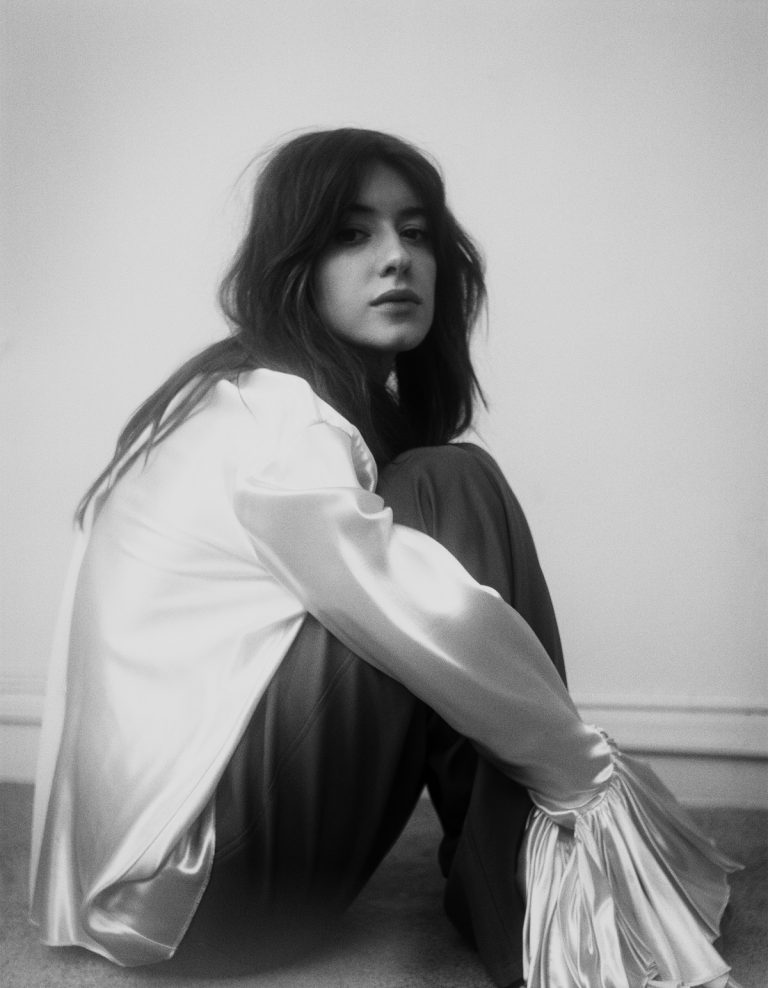
Blouse and trousers KHAITE, all jewellery TIFFANY & CO.
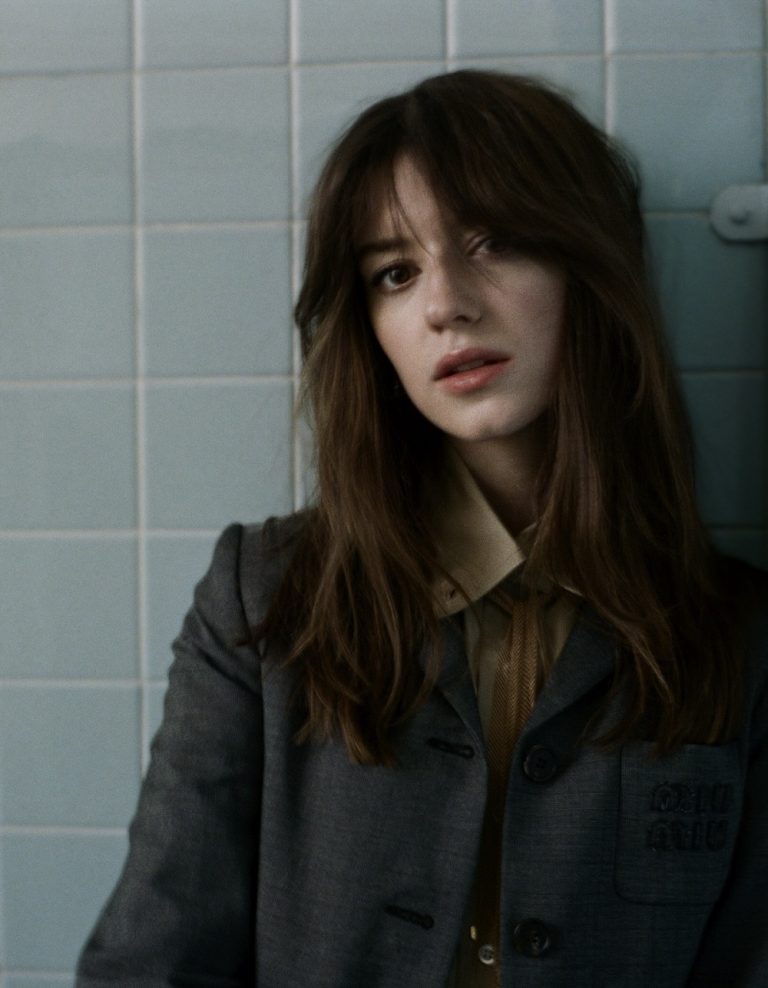
Blazer and shirt MIU MIU, all jewellery TIFFANY & CO.
Cool. Kya—let’s have a look. 'Champagne Coast' by Blood Orange was what I listened to on repeat for some reason. I love that song.
Maybe I have weird synesthesia, but when I listen to Blood Orange’s music, I really understand how that can project images.
We actually had two Blood Orange songs in 'Fresh' as well.
Oh, I’ve got some more. 'Hey, Ma' was on from Bon Iver. Bat for Lashes, 'Daniel'. A bit of Wolf Alice and Ariel Pink. It was a real mixture of stuff. Playlists are definitely my main thing.
Let’s talk cults. So, when it comes to [the series] 'Under the Banner of Heaven', did you know much about cults before you started filming?
It’s largely about Mormonism. I didn’t know about fundamentalist Mormons. I didn’t know much about them at all. My introduction to it was through reading the book 'Under the Banner of Heaven', which is a non-fiction book by Jon Krakauer, an incredible book, I’ll say. I really want to read his other stuff. I haven’t read 'Into Thin Air', but I know that’s going to be brilliant too. But that was my first introduction and I learnt so much about religious fundamentalism that I had no idea about. It was quite wild to read about it.
What did you know about the brothers in this story before reading the Under the Banner script? What part of the intricacies of the story drew you in?
I didn’t know anything about the brothers or the story or the case. I got the script, read the first two episodes, and I was very, very, very intrigued. Then I picked up the book and read it during filming. I learnt so much. I found Jon Krakauer’s writing incredibly intriguing—he really interlays modern-day stories [with the original crime case]. He was sort of coming across with a history of the faith. I thought that was really well done.
Then when I read Lance’s script, I thought he had adapted it in a very clever way. I was also very excited to work with the team of people that were making it. And to be a member of a big ensemble cast again, I was very excited about that prospect.
It must have been very difficult playing someone [Brenda Lafferty] who was so brutally and tragically murdered. How did you feel during filming and how did you separate yourself from something as tragic as that?
There was definitely a sense of responsibility, especially because the victims of this crime are still very much alive. Her family is still alive. Knowing that, I wanted to be really careful with that and sensitive to it. But also, I guess what I thought was important about the script was that it was trying to… I think they were celebrating her life as well. Not just talking about her death. So often, victims in true crime, they are defined by that thing, and I really thought this was an opportunity—because Brenda was such an incredible woman and did so much good.
I found her incredibly inspiring, reading about her in the book, but also in the scripts and learning about her and speaking to Lance, our showrunner, who’d met the family and was very close to her father. I had a lot of information about her, and I just thought, what an amazing person. I thought it was important to make sure to celebrate her in the scenes that I could. A large amount of the series, we see her do amazing things and I wanted to do that justice, really, to do her justice.
Would you say that your Irishness helped? Because I would say that in our culture, when people pass away, the whole idea of a wake is not to just think about death. It’s to celebrate life. Finding that balance. I think a lot of people would be quite overwhelmed with that role when actually you’re [telling] me, no, this is a celebration of life. I feel like there’s a weird Irish link there.
I didn’t think of that.
The normalisation of death in our culture is very much like a celebration of life, too. It’s like, yes, death is inevitable, but we can also think about [and celebrate] all these other things. Do you think that helps in any way, maybe subconsciously?
That’s a nice thought. I think you’re right. I think the Irish, I think their relationship with death is a celebration often of somebody’s life. Perhaps it did play into it; going, well, this is a chance with certain scenes to really highlight what an incredible woman she was and how much good she did. This is a chance to really do that.
Why do you think we focus on and celebrate romantic over platonic love? What do your friendships with women add to your own life?
One of the things that drew me to 'Fresh' was the friendship between Noa and Mollie. It was so well-observed. And I know that I would fiercely defend and look after and support my friend the way that Mollie does with Noa, and Noa with Mollie.
I just loved that at the end of the story, it was three women saving themselves. I do think it would be great to have more film and TV that puts women together, supporting each other, rather than pitting them against each other. My female friendships mean so much to me, and I’ve had plenty of ‘galentines’, rather than a valentine. They’re always the best, because romantic relationships often represent a moment in time, whereas a friendship will outlast those and last forever.
What do you hope for? What does hope itself mean to you and what role does it play in your life?
I hope to be happy. I hope to be happy and to enjoy life as much as possible. As for what does hope mean to me… Oh, gosh, it’s hard to say. It’s looking forwards. Sort of dreaming towards something.
Yet when I say ‘I hope to be happy’… I listened to a podcast when I was in quarantine, and I remember it saying, ‘We so often hope that one day we’ll be happy.’ In the world we live in, the consumerism that we experience day-to-day in our culture, the constantly being presented with the idea that if we get this thing, or if we achieve this by this time, we’ll be happy. I remember this podcast was saying, ‘What if you just decided to be happy now?’ Which isn’t easy. That really jolted me back into the reality of going, we’re constantly racing against ourselves sometimes in this world. Often it’s only when you look back you realise, I actually was happy at that time, but I was too busy wondering ‘if’. Too busy looking forward to the next thing. And so, yeah, maybe I should change my answer from ‘being happy’ to being present as much as possible.
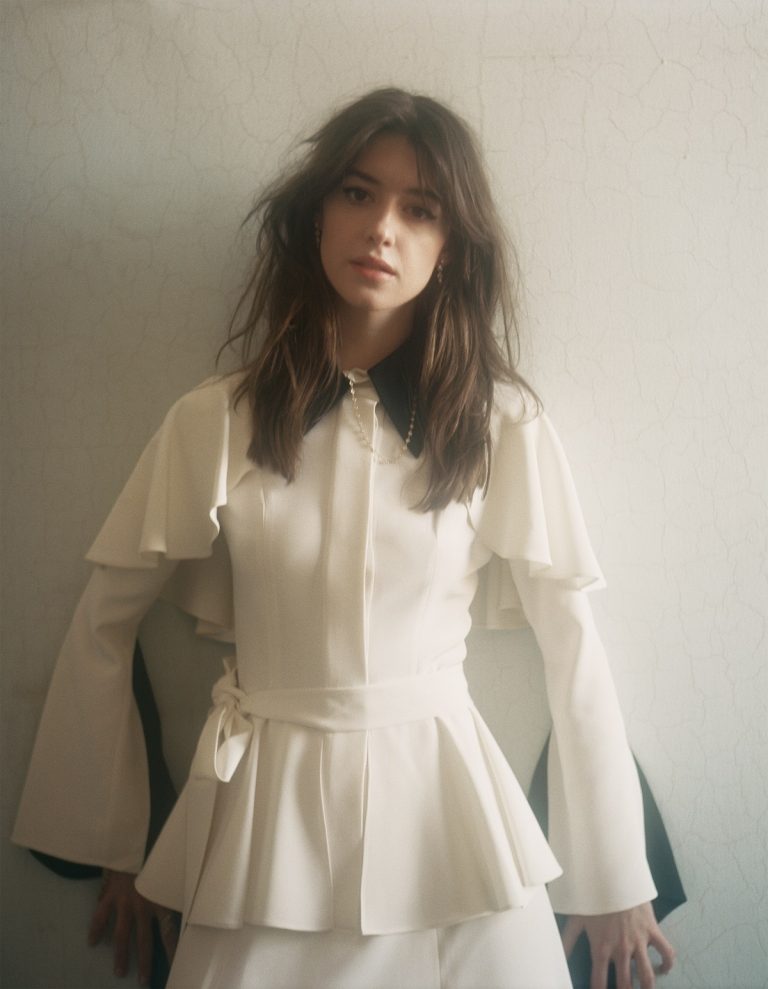
Dress RODARTE, all jewellery TIFFANY & CO.
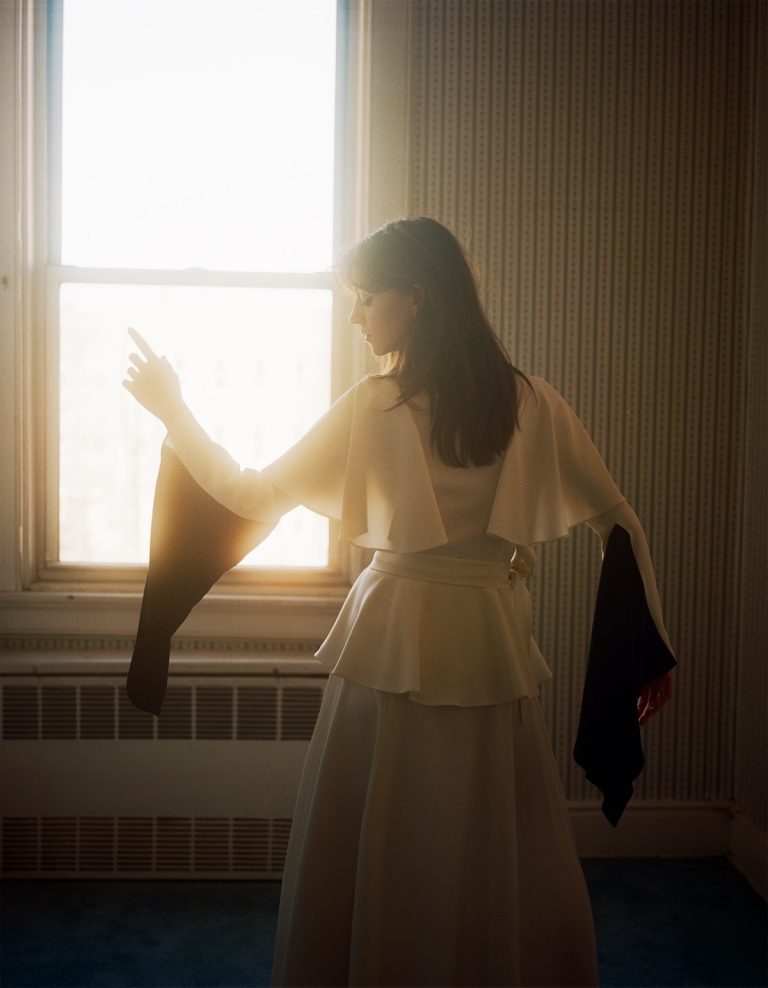
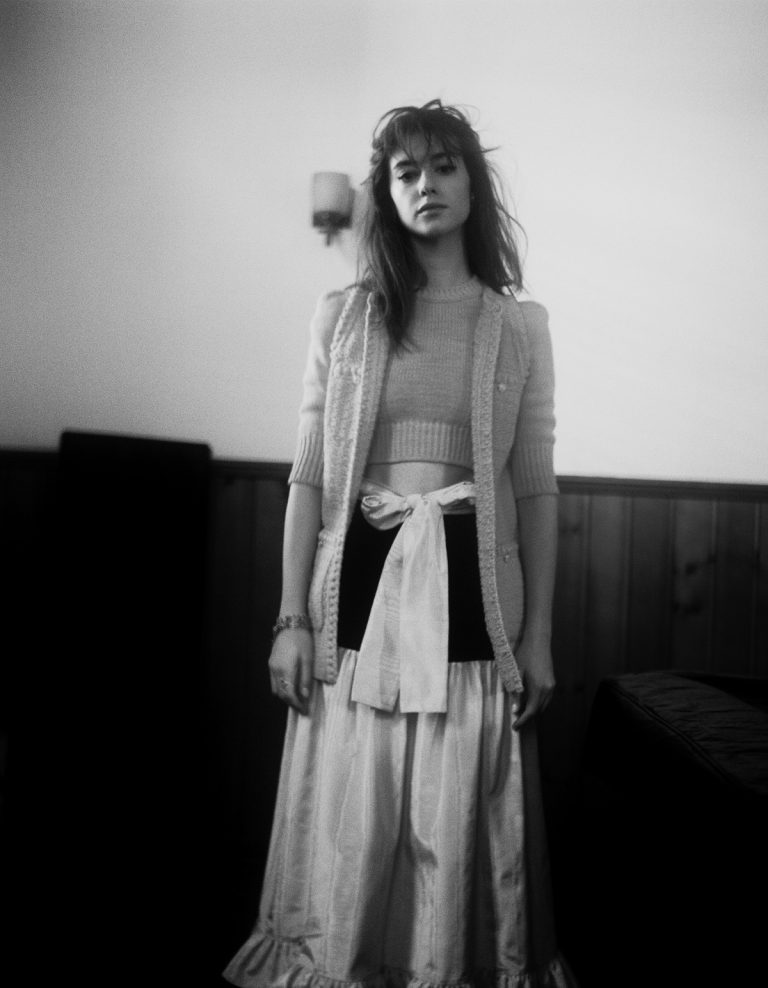
Top and cardigan CHANEL, skirt BATSHEVA, all jewellery TIFFANY & CO.
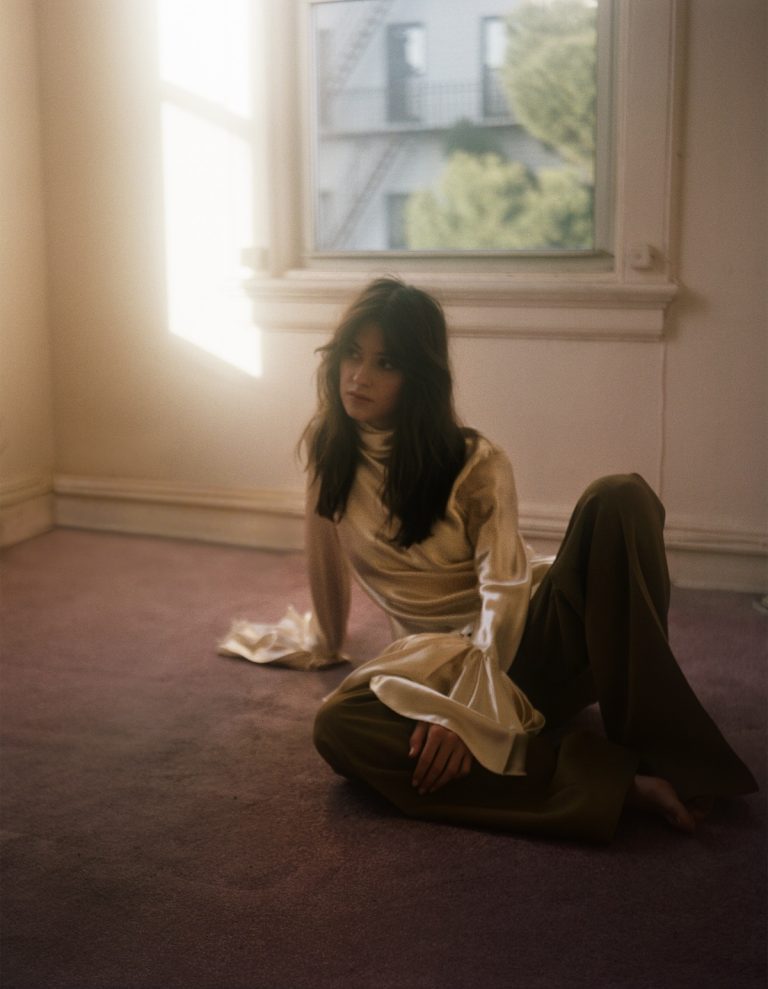
Blouse and trousers KHAITE, all jewellery TIFFANY & CO.
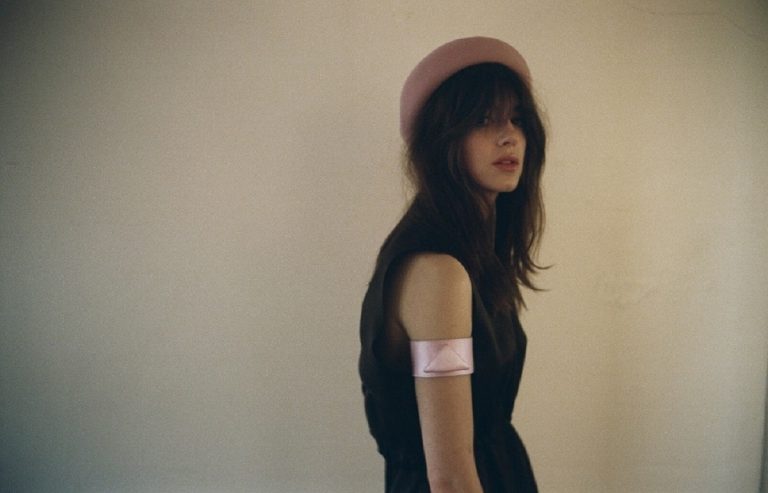
Dress and arm cuffs PRADA, beret EUGENIA KIM, all jewellery TIFFANY & CO.
Related Articles

Liberty 150 x150 curated by Leith Clark: The Founder Interviews

Liberty 150 x150 curated by Leith Clark: The Founder Interviews

Liberty 150 x150 curated by Leith Clark: The Founder Interviews

Liberty 150 x150 curated by Leith Clark: The Founder Interviews
